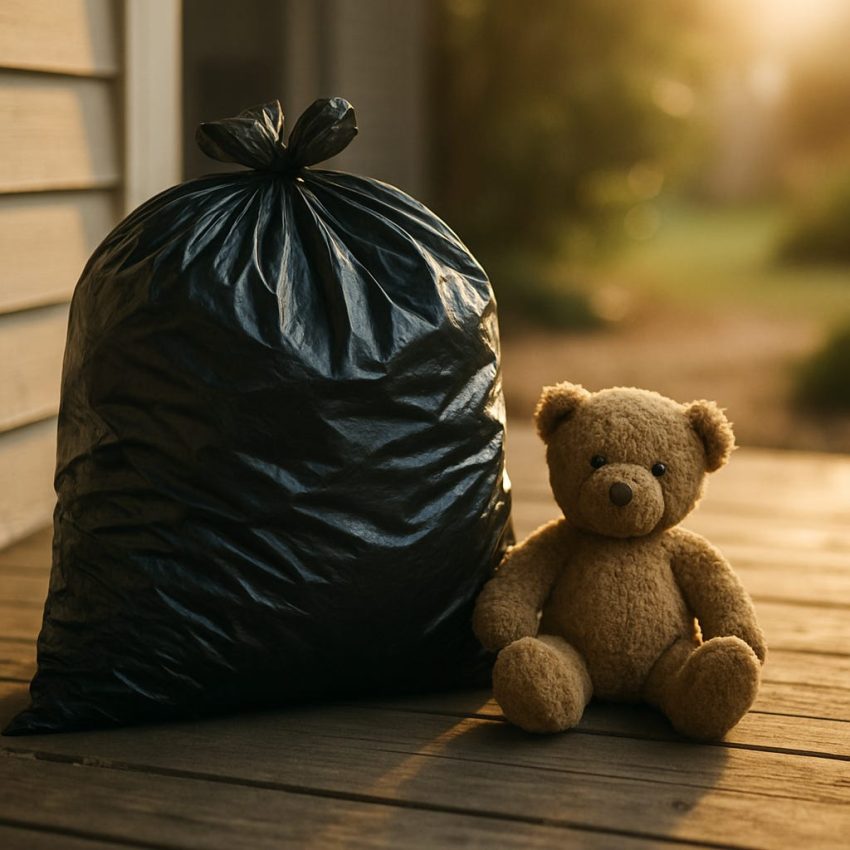 EDITOR’S NOTE: Here’s an installment from Tillamook County’s State Representative Cyrus Javadi’s Substack blog, “A Point of Personal Privilege” Oregon legislator and local dentist. Representing District 32, a focus on practical policies and community well-being. This space offers insights on state issues, reflections on leadership, and stories from the Oregon coast, fostering thoughtful dialogue. Posted on Substack, 4/25/25
EDITOR’S NOTE: Here’s an installment from Tillamook County’s State Representative Cyrus Javadi’s Substack blog, “A Point of Personal Privilege” Oregon legislator and local dentist. Representing District 32, a focus on practical policies and community well-being. This space offers insights on state issues, reflections on leadership, and stories from the Oregon coast, fostering thoughtful dialogue. Posted on Substack, 4/25/25
By Cyrus Javadi, State Representative District 32
A Plastic Bag and a Brutal Message
Here’s a brutal image: a child, already yanked from everything familiar, handed a black plastic trash bag and told to pack their life. Not out of cruelty, but convenience. That’s what’s available. That’s what’s on hand. And over time, that logistical shortcut hardened into protocol.
It’s the kind of quiet indignity we’d never tolerate for ourselves. You wouldn’t pack your dog’s toys in a trash bag and call it dignified. You wouldn’t pack for a vacation or a job interview or a hospital stay with a Hefty sack. And yet for thousands of foster children, this has been the system. Their clothes, keepsakes, drawings, report cards, the stuffed animal that still smells like the last place they felt safe—all crammed into something designed for leaves and leftovers.
And let’s not pretend the symbolism is subtle: you are disposable.
It’s a moment that shouldn’t exist in a country that claims to care about children. But it happens, over and over, across the country—and until recently, it happened here in Oregon, too. That is, until a few lawmakers decided to do something that rarely happens in politics: fix a problem that doesn’t make headlines, but matters deeply to the people who live it.
The Bill That Says Otherwise
This is what Senate Bill 1016 puts squarely in the crosshairs. Thanks to the leadership of Senator Janeen Sollman, a Democrat, and Representative Anna Scharf, a Republican—yes, you read that right, bipartisan cooperation still exists—Oregon is on track to become the first state in the country to ban this practice outright.
No more trash bags. Under the bill, the Oregon Department of Human Services will be required to maintain a supply of proper luggage—bags with zippers, handles, and compartments. Maybe even a touch of dignity.
This is the kind of bill that some might wave off as symbolic. But if you’ve ever sat on the edge of a stranger’s couch, trash bag at your feet, unsure of where you’ll sleep that night—it’s not small. It’s enormous. That bag is your suitcase, your security blanket, your statement to the world. And it says everything about how the system sees you.
For those who’ve never experienced it, it might seem like window dressing on a deeper problem. But ask someone who’s been through the foster system, and you’ll hear a different story. You’ll hear about how it feels to have your whole life tied up in plastic, and what it would have meant to have even one adult say, you deserve better than this.
Not a Silver Bullet—But a Signal
To be sure: this bill isn’t going to solve every crisis in Oregon’s foster care system. It won’t fill the staffing gaps, recruit more foster families, or plug the holes in mental health services. It won’t ease the heartbreak of being taken from your home, or the fear of landing in another one where you’re not sure if you’ll be safe.
But it does something that policy often fails to do: it sends a signal. A signal that we see these kids. That they’re more than just a file folder, a case number, or a placement. That the details of how we treat them—especially in the worst moments of their lives—matter.
There are bills that make headlines, and then there are bills that restore humanity. SB 1016 is the latter.
In a Capitol where the air often feels thick with slogans and self-interest, this was a moment of clarity. A rare example of doing the right thing not because someone checked to see if it polls well, but because it’s right. It’s government at its most basic: meeting a real need, for real people, in a way that affirms their dignity.
Proud to Stand Beside Real Leadership
I’m proud to be a sponsor of this bill. Proud to stand with Senator Sollman and Representative Scharf, who led this effort with heart, humility, and the kind of political courage that doesn’t come with a fan club. They did it because sometimes, even in politics, compassion gets the floor.
This wasn’t about ideology. It wasn’t about scoring points or throwing elbows. It was about right and wrong. About making sure that when a child is at their most vulnerable, the state’s response doesn’t dehumanize them further.
And yes—Oregon will be the first. But let’s hope we’re not the last.
If anything, we should be embarrassed it took this long. There’s no reason any child, in any state, should be packing their life into a garbage bag in 2025.
More Than Just a Bag
Policy isn’t always personal. But sometimes, it should be.
Sometimes, the smallest details carry the greatest weight. Sometimes, the difference between despair and dignity is measured in fabric and stitching. And sometimes, the right kind of bag can carry more than belongings—it can carry hope.
SB 1016 isn’t flashy. It’s not revolutionary. But it’s a reminder that decency still has a place in politics. That when we put partisanship aside and listen—really listen—to those who’ve lived the policies we pass, we can craft laws that don’t just govern, but uplift.


